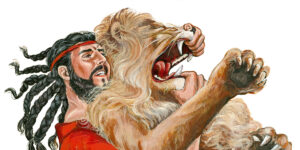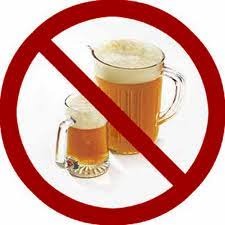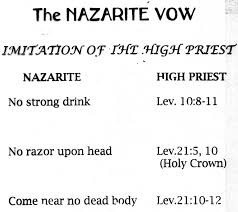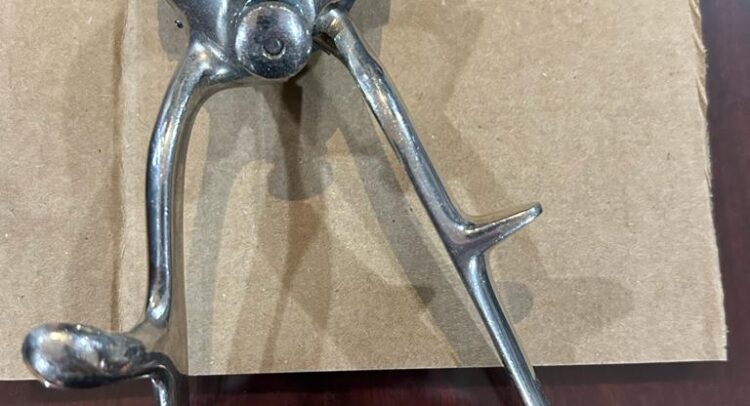Raboyseyee and Ladies,
We begin with big mazel tov wishes to our dear friends Lemor and Murry Englard upon the aufruf this coming Shabbis and the wedding -one week from today- of their son Mikey (Michael Austin) wo will be marrying Tyler Schwartz, the beautiful of Yocheved and March Schwartz, they of Englewood New Jersey. We have known Mikey since birth and have watched him develop into the man he is today. A big mazel tov to both extended families. May Tyler and Mikey merit to enjoy many decades of very blissful marriage. The Ois and eishes chayil look forward to attending this great simcha.
Wine, Lust & The Haircut:
The heylige Ois has very clear and vivid childhood memories of his father cutting his hair. He used the clippers shown in the image just above. Mamish those ver ones. His haircuts were similar to what the barbers call a zero or a #1 haircut. Oh, did I hate those haircuts. As well, the Ois remains traumatized from the various times his high school principal – Rabbi Klein, may he rest in peace- who, from time to time would roam the hallway to do hair inspections. He pulled a ruler out of his shirt pocket and if one’s hair was longer than 1 and ½ inches, off to the barber shop one was sent. Grada that happened to me more than once; I did not like short hair. I do admit to enjoying being sent out of school -in the middle of the school day- to the barber shop on East 7th street just up the block; that killed up to an hour. And the questions included these: why was he so obsessed with hair? Is long hair bad? Was two inches too long? Why was my father so insistent on the zero haircut? Didn’t Shmuel Hanovee (Samuel) have long -ver long- hair? He did! In fact, he was a nozir, a nazirite. And didn’t Shimson Hagibor (the mighty Samson) also keep his hair quite long? He did! In fact, his hair had never been cut since birth. It may well have been the source of his strength. He too was a nozir. Both were special people. One a prophet to whom the RBSO spoke -albeit through a vision or a dream, but still…does He talk to you? And the other? Samson, also with long hair due to his nizirus, fought and smote a lion and the Plishtim. He is forever famous. Both very much loved by the RBSO. Have you ever seen a depiction of Moishe with short hair? Never! Where is it written that short hair is preferred for religious Jews? And a shaved head for Chasidim? As an aside, certain Chasidic women also shave their heads clean.

Ober, what have these questions to do with this week’s parsha of Nosi? We shall address these questions below as we meet the nozir, one of the more interesting characters in our parsha. I say one because our parsha also features the soita- the woman accused by her jealous husband of having secluded herself with another man long enough to have chapped, if you chap. More on the nozir below, ober let’s begin here.
Nu, if you enjoy talking in shul, this is your parsha. If you typically come somewhat late and find yourself playing catch-up, this is your parsha too, but, if it happens to be your son’s upcoming bar mitzvah parsha, it’s avada givist (surely), not your parsha and change it immediately. With its 176 pisukim, it’s the longest in the gantze heylige Toirah, bar none. The emes is that it’s not at all a difficult parsha as it repeats sheyvet by sheyvet (tribe by tribe) each Nasi’s (Prince) korban and if you study one, you basically know them all. Nosi is mamish chock full of very interesting topics and characters and this year -our 13th time around the parsha- we will but mention that our parsha covers such diverse topics as priestly duties, camp purification, and restitution for wrongs committed. It uncovers -so to speak- the wife accused of unfaithfulness ( סוטה, sotah), the nozir (nozirite), the Priestly Blessing, and consecration of the Tabernacle. So happens that our parsha also has the largest number of letters, words, and pisukim of any of the 54 weekly parshas. This year we will take a look at the nozir (nozirite), his wild hair, and lifestyle restrictions. His what? What the heck is a nozir? Let’s find out. We first meet him or her with these words:
“If a man or a woman assumes a special nazirite vow (neder nozir), to separate himself to G-d.” This posik is followed by a few more that place various restrictions on the individual who has decided -for whatever reason- to become a nozir. In any event, once the person declares his or her intentions, the RBSO imposes various restrictions on the nozir’s lifestyle. The good news: the restrictions aren’t forever; they last only as long as his nizirus. The nozir must observe three prohibitions:
- no drinking wine or consuming grape products
- no haircuts
- no contact with a dead body

Note: that last restriction does not include his wife’s behavior in the bedroom. Shoin, let’s chazir (review): the nozir has vowed to separate him or herself to the RBSO; 2- He shall separate himself (yazzir) from wine; 3- He shall not make himself impure for them when they die, for G-d’s crown (nezer) is upon his head. That last meaning that he cannot be near a corpse. In that way he is like the kohian who has certain restrictions around the dead. We’ll come back -or not- to the word “nezer” later. Let’s reviews. In plain English, based on what the heylige Toirah tells us, the nozir (nazirite) is a person -he or she- who dedicates him- or herself to the RBSO with an oath. The heylige Toirah introduces the nozir with these words. Let’s read them from our parsha (6:2):
במדבר ו:ב …אִישׁ אוֹ אִשָּׁה כִּי יַפְלִא לִנְדֹּר נֶדֶר נָזִיר לְהַזִּיר לַי־הוָה.
If a man or woman, takes the wonderous step of uttering a nazirite vow, to be consecrated to Hashem. And? What next? Shoin, now that we know who this person is and what he or she is called, the Toirah tells us the following: For however long the vow is to last, the nozir is bound by three prohibitions. The nozir is restricted -very- from the consumption of wine, or any grape product. Got that? Let’s read further. Let us read pisukim 3 and 4:
במדבר ו:ג מִיַּיִן וְשֵׁכָר יַזִּיר חֹמֶץ יַיִן וְחֹמֶץ שֵׁכָר לֹא יִשְׁתֶּה וְכָל מִשְׁרַת עֲנָבִים לֹא יִשְׁתֶּה וַעֲנָבִים לַחִים וִיבֵשִׁים לֹא יֹאכֵל. ו:דכֹּל יְמֵי נִזְרוֹ מִכֹּל אֲשֶׁר יֵעָשֶׂה מִגֶּפֶן הַיַּיִן מֵחַרְצַנִּים וְעַד זָג לֹא יֹאכֵל
He shall abstain from wine and any other intoxicant; he shall not drink vinegar of wine or of any other intoxicant, neither shall he drink anything in which grapes have been steeped, nor eat grapes fresh or dried. Throughout his term as nazirite, he may not eat anything that is obtained from the grapevine, even seeds or skin

In plain English: the nozir shall abstain from wine and brandy; he shall not drink wine vinegar or brandy vinegar; nor shall he drink any liquor of grapes; nor shall he eat moist or dried grapes. And throughout his nizirus (time period during which he is a nozir), he shall eat nothing that is made from the grapevine, from kernels to husk. The bottom line: The heylige Toirah did not stop at a prohibition on wine, but broadened it to include anything that is made from any part of the vine; all loopholes closed by the RBSO! As to why the heylige Toirah went out of its way to specifically delineate the entire list when it could have just instructed the nozir not to eat anything that is made from the grapevine, ver veyst?
As an aside, the nozir’s limitations on drinking exceeds any parallel restrictions placed on the kohanim (priests), who are forbidden to drink wine only, and only when on the job. Why the nozir is so restricted, we are not specifically told but -and as expected- a few exegetes did weigh in with their own ideas. The bottom line of their ideas is this: wine seemingly leads to lust; lust leads to sexual activity, sometimes kosher and at times, forbidden. Shoin and veyter.

Says the Ibn Ezra, azoy: The reason for [the inclusion of] wine vinegar and liquor and grapes [in the prohibition] is as a geder -a fence- to distance a person altogether from wine. The way these prohibitions are arranged – from wine down to the parts of the fruit that are usually discarded – represents one fence after another. The RBSO knew that one might try everything but the actual wine if not specifically forbidden. The bottom line: if the RBSO chose to specifically list each item, there must be a damn good reason.
And the questions are many and include these: Why would a person choose to accept nazirite vows? Is there rationale for the three specific prohibitions which apply to a nozir? What is the purpose of this period of abstention? Does the heylige Toirah want people to undertake it? Why must a nozir offer a korban chatos (sin-offering) at the end of the vow? Is separating oneself to the RBSO a bad thing? What sin has he committed? Did he trim his beard? Chap a drink at the kiddish club? Was he lurking around the cemetery? Shoin, let us review the restrictions one by one and piece this puzzle together.

Rashi, at the beginning of his commentary on the subject of the nozir (v. 2), explains why the pisukim regarding the nozir follow that of the sota, the woman suspected by her husband of adultery, who participates in a procedure to clear her of any suspicion and restore domestic harmony: Why is the parsha of the nozir juxtaposed with the parsha of the soita? To tell us that anyone who observes the soita in her disgrace will abstain from wine, which leads to adultery. Says who? So says Rebbe Yehuda Ha-nasi’s in the heylige Gemora (Soita 2a). Drinking wine leads to frivolity, loss of control, and the possibility of a person ultimately ending up committing adultery; thus, the essence of the nozir is abstinence from wine. Gishmak.
Says the heylige Gemora (Sanhedrin 38a), azoy: “Having mentioned the sons of Rabbi Chiyya, the Gemora relates: Yehuda and Chizkiyya, sons of Rabbi Chiyya, were sitting at a meal before Rabbi Yehuda HaNosi, and they were not saying anything. Rabbi Yehuda HaNosi said to his servants: Add more wine for the young men, so that they will say something. Once they were inebriated, they loosened their tongues and said: The son of David, i.e., the Moshiach, will not come until two fathers’ houses are destroyed from Israel, as those two families are preventing the redemption. And they are the head of the exile who is in Babylonia, i.e., the family of the Exilarch, and the Nasi who is in Eretz Yisrael, i.e., the family of Rabbi Yehuda HaNasi, as it is stated in reference to the Moshiach: “And he shall be for a sanctuary; but for a stone of stumbling and for a rock of offense to both the houses of Israel” (Isaiah 8:14). Rabbi Yehuda HaNasi said to them: My children, do you throw thorns in my eyes? How can you say this in the presence of the Nasi himself? Rabbi Chiyya said to him: My teacher, do not view their behavior in a negative light. Wine [yayin] is given in letters of seventy, i.e., the numerical value of the letters in the word yayin is seventy, and secret [sod ] is given in letters of seventy, i.e., the numerical value of the letters in the word sod is seventy. When wine enters, secrets emerge.” In other words, wine brings about loose lips. You know the rest. The key words I Hebrew are well known:
נכנס יין יצא סוד
Wait! There’s more: Says the Ibn Ezra, azoy: “Neder nozir” – …to distance himself from lusts, and he does this for the sake of G-d’s service, for wine corrupts one’s thinking and one’s service of G-d. The abstinence from wine is meant not only to distance a person from the possibility of adultery, but also to avoid a state of frivolity, which could lead to a variety of transgressions, and which adversely affects a person’s Divine service. The bottom lines: According to these commentaries, becoming a nozir means separation or abstinence, aimed at distancing the person from transgression. The nozir avoids drinking wine and brandy, which cause inebriation and may lead to sin. However, from the Ibn Ezra’s explanation we see that there is more involved here than just keeping oneself from sin. There is also the element of acting “Lishaim Shomayim” (for the sake of G-d’s service).
Shoin, having settled why the nozir is wine restricted, let us move on and try chapping why the nozir is also prohibited from getting his/her hair cut. What’s pshat? So happens -and as mentioned- this particular restriction is unique to the nozir. What was the RBSO’s message to the nozir? Lets’ read the posik innaveynig: says the heylige Toirah (Bamidbar 6:5) azoy:
במדבר ו:ה כָּל יְמֵי נֶדֶר נִזְרוֹ תַּעַר לֹא יַעֲבֹר עַל רֹאשׁוֹ עַד מְלֹאת הַיָּמִם אֲשֶׁר יַזִּיר לַי־הוָה קָדֹשׁ יִהְיֶה גַּדֵּל פֶּרַע שְׂעַר רֹאשׁוֹ
“Throughout the term of his vow as a nazirite, no razor shall touch his head; until the completion of his term as a nazirite of Hashem, the pera hair of his head growing shall remain consecrated.” What’s the pera? Back to that soon. The posik begins with a simple prohibition against shaving the head, but continues with a positive statement that the hair itself is consecrated. Hair is holy! This point is made clearer in the third prohibition where the nozir is prohibited from coming into contact with a corpse. Space won’t allow the Ois to cover much on the third restriction; that for another day. Let’s read the restriction from the text.
במדבר ו:ו כָּל יְמֵי הַזִּירוֹ לַי־הוָה עַל נֶפֶשׁ מֵת לֹא יָבֹא. ו:ז לְאָבִיו וּלְאִמּוֹ לְאָחִיו וּלְאַחֹתוֹ לֹא יִטַּמָּא לָהֶם בְּמֹתָם כִּי נֵזֶר אֱלֹהָיו עַל רֹאשׁוֹ. ו:ח כֹּל יְמֵי נִזְרוֹ קָדֹשׁ הוּא לַי־הוָה.
“Throughout the term that he has been consecrated to the RBSO, he shall not go in where there is a dead person. Even if his father or mother, or his brother or sister should die, he must not defile himself for them, since the crown (nezer) of his G-d is upon his head. Throughout his term as nazirite he is consecrated to the RBSO.
Ok, now we need to learn what the pera and the nezer are. The meaning of the verb נ.ז.ר is “to consecrate,” but the noun form nezer means “crown” and it is this crown of hair that is consecrated. Similar language is used in the law forbidding the koihen godol (high priest) to become impure even for relatives:
ויקרא כא:יא וְעַל כָּל נַפְשֹׁת מֵת לֹא יָבֹא לְאָבִיו וּלְאִמּוֹ לֹא יִטַּמָּא. כא:יב וּמִן הַמִּקְדָּשׁ לֹא יֵצֵא וְלֹא יְחַלֵּל אֵת מִקְדַּשׁ אֱלֹהָיו כִּי נֵזֶר שֶׁמֶן מִשְׁחַת אֱלֹהָיו עָלָיו אֲנִי יְ־הוָה.
Lev 21:11 He shall not go in where there is any dead body; he shall not defile himself even for his father or mother. 21:12 He shall not go outside the sanctuary and profane the sanctuary of his G-d, since the crown of his G-d’s anointing oil is upon his head, I am Hashem.

Both meanings come together in defining the nozir: The nozir separates and distances himself from a number of elements characterizing this world (wine, haircuts, impurity). At the same time, he grows and approaches sanctity; his head is graced, as it were, with the crown of spiritual status and sanctity. The nozir’s head grows holy hair. Gishmak!
The bottom lines: Throughout the days of his nazirite vow, no razor shall pass over his head, until the days during which he separates himself to G-d are completed; it shall be holy, (and) he shall allow the locks of the hair of his head to grow long. We still don’t know why, ober the medrish (Bamidbar Rabba 10:10) connects the prohibition of haircuts with the prohibition of drinking wine: Why does the RBSO command the nozir not to cut his hair? Because cutting his hair enhances his appearance… while growing hair is a sign of sorrow and mourning. Therefore, the RBSO says, “Since this nozir has prohibited wine for himself in order to keep himself away from licentiousness, let him grow his hair long, so that he will become untidy and will be pained by it; then, his evil inclination will not overcome him.” In other words: the essence of the nozir is abstinence from wine. The prohibition of cutting hair is added in order to reinforce the separation from adultery. The bottom line: all roads lead to adultery.
Says the Seforno: “He thereby casts aside any thought of physical beauty and styling of his hair. Adds the Alshich, “Lest his evil inclination rise up.” Wine plus hair seemingly = to a rise-up of the evil inclination -and other things, if you chap. Well, that was then! Ober, says the heylige Ois azoy: In hyntige tzytin (today’s times) amongst many, if not most, it’s punks farkert (exactly the opposite) longer hair is more associated with lust and inclinations than short cropped hair. Ober, according to commentators quoted, the prohibition on haircuts comes to reinforce the concept of separation. Cutting one’s hair symbolizes one’s involvement with physical beauty, and the nozir must separate himself from such interests so as not to fall prey to the evil inclination. As mentioned, space won’t allow the Ois to bring other examples where one’s hair was considered beautiful, ober for today, the bottom line is that the nozir cannot cut his/her hair during the time of nizirus (time set aside for separation to the RBSO).
Let us close by trying to better understand the entire concept of nizirus. Does the RBSO encourage or discourage one from becoming a nozir? Is it good or bad to be a nozir? On the one hand it seems to be a holy path that is rooted in the heylige Toirah. The RBSO gives specific instructions on how to practice separation. On the other hand, the nozir -upon completion of his nizirus- is obligated to bring a korban. Not just any, but a sin-offering as if he committed a no-no. Does this not imply that the undertaking of nizirus is a sin? What’s pshat here?
Says the Rambam on our parsha azoy: It depends on the intent. “Our sages directed man to abstain only from those things which the heylige Toirah denies him and not to forbid himself permitted things by vows and oaths. Thus our sages of the heylige Gemora (Jerusalem Talmud, Nedarim 9:1) rhetorically asked: ‘Are not the things which the Toirah has prohibited sufficient for you? [Why] must you add further prohibitions?’ However, if a person sees that he or she is excessively vain or indulgent, a vow of abstinence may have a proper place in that person’s service of G‑d.
Consider the following myseh (story) (also from the heylige Gemora in Nedorim. Rebbe Shimon Hatzadik (the Just) would rarely partake of the sacrifices of a nazirite. Once, however, he saw a particularly handsome young man who had taken a nazirite vow. He asked him why he had done so and the young man explained that due to his good looks (which he became aware of when he saw his reflection in a well), he was being tempted by his evil inclination. To rise above the temptation, he took the nazirite vow. Rebbe Shimon praised him for his actions. What’s pshat? Vyst zich ois azoy (it does then appear) that the nazirite is a holy calling—rising above the mundane by observing a meticulous lifestyle. But, and a very big but it is: it is not right for everybody. For if the RBSO willed it, He would have created a world with no wine and no temptations. Rather, He wants us to live within His world and uncover the wonder and meaning that He embedded within it. On the other hand, should a person often find himself rising up for the wrong reasons, if you chap, perhaps a time out during which he becomes a nozir, is not a terrible idea. It’s efsher analogous to an extended cold shower.
A gittin Shabbis-
The Heylige Oisvorfer Ruv
Yitz Grossman

1 Comment
Yitz…….I miss you. I called Beril Schmookler this week to see how he is doing and he mentioned your current week’s piece mentioning Rabbi Klein. Brings back strong memories.
I recently reconnected with Ben Welwart and I am working to help him with his troubles. I arranged that the Skulener Rebbe of Boro Park gave him a hartzik Bracha…..may it be mekuyam. I also ran into old friend Boruch Singer who told me that he went to Murry for his accounting & tax needs after his CPA David Barr died pretty suddenly.
Hoping you and your mishpocha are well. Hey….let’s be in touch ! Gut Shabbos.